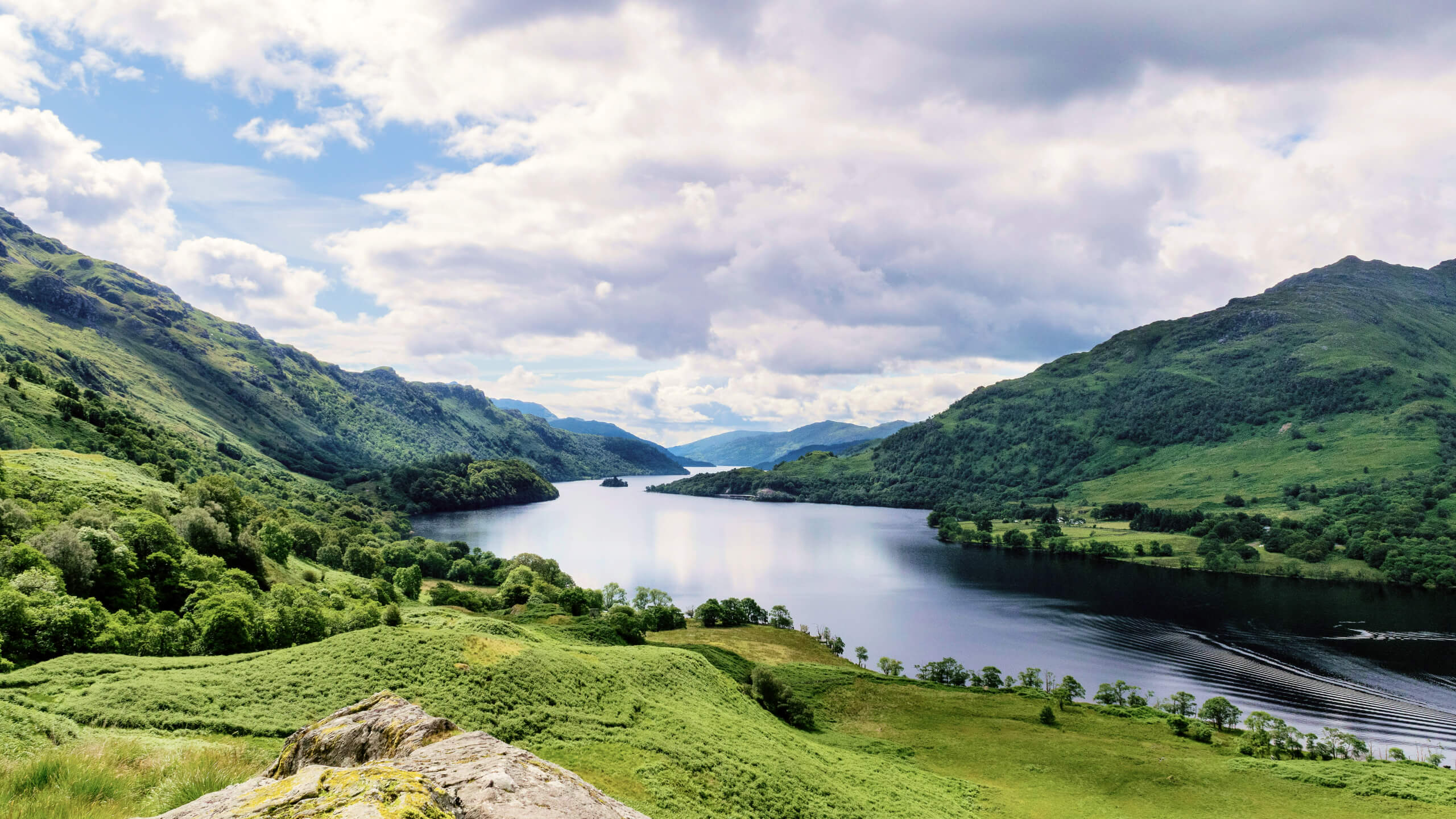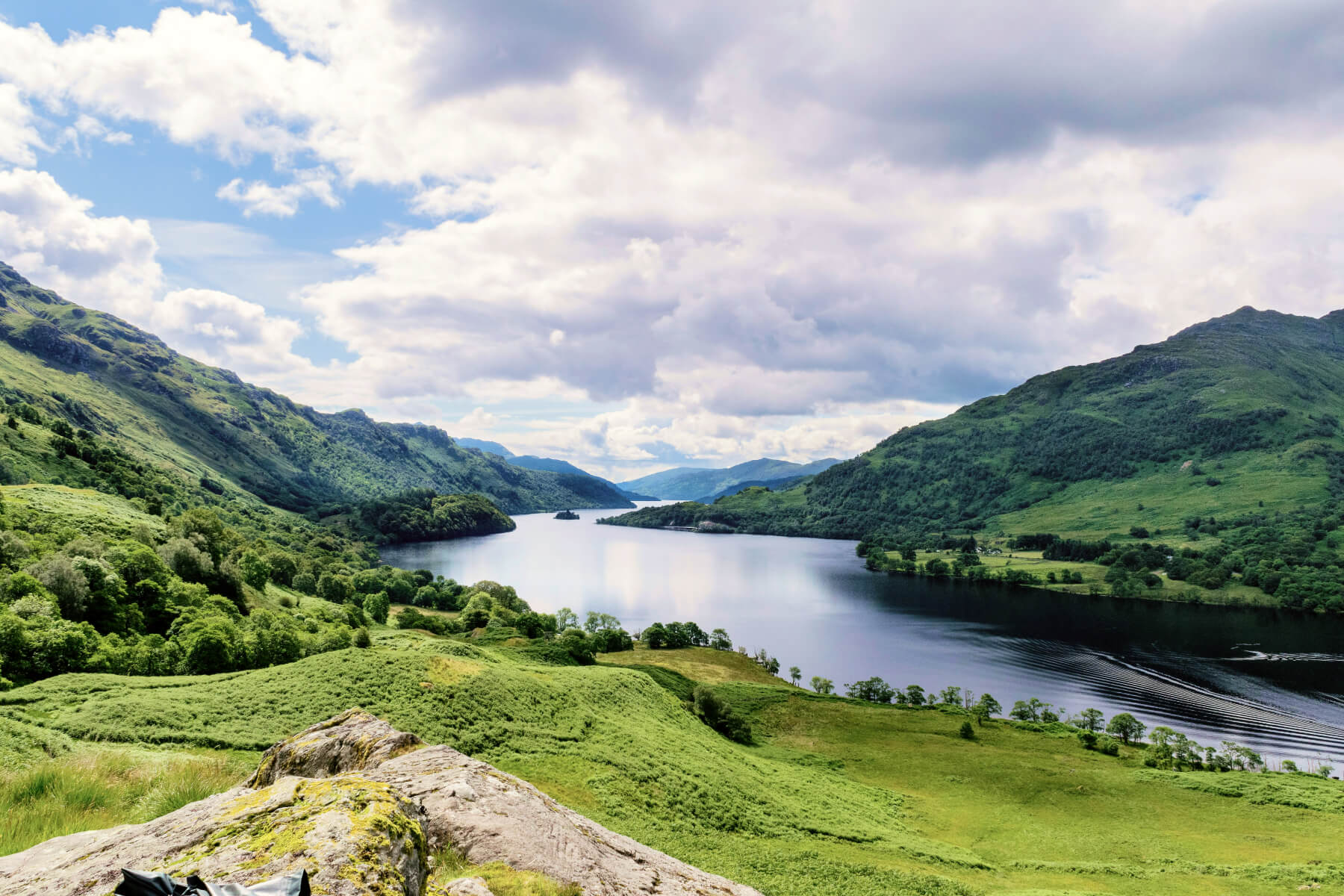Reforestation in the
United Kingdom
From the rugged highlands of Scotland to the rolling hills of England and the lush woodlands of Wales, the landscapes of the United Kingdom are as diverse as they are beautiful. Its varied ecosystems include ancient woodlands, heathlands, and wetlands, and support a wide range of species. However, centuries of deforestation have led to habitat fragmentation and biodiversity loss, making reforestation efforts crucial for ecosystem recovery and climate resilience.
The UK is one of the least wooded places in Europe today — a stark contrast to the glorious forests that once covered the island. This is due to several factors, including deforestation driven by agriculture, industry, human settlement, global trade, technological developments, transport links, and invasive species. Additionally, the impacts of extreme weather events are becoming more frequent, stressing the need for reforestation and conservation efforts to protect and restore vital ecosystems.

the United Kingdom Stats
60
Native trees
There are 60 native tree species in the United Kingdom.
300
Square miles
At nearly 300 square miles, Scotland’s Galloway Forest Park is the largest forest in the UK.
13%
wooded
Only around 13% of the UK’s landmass is wooded.
11 must-know facts about woods and forests in the UK, Woodland Trust
75%
Habitat Loss
At least 75% of California’s original habitat has already been lost.
60%
Of Water
60% of potable water in California is sourced from forested watersheds.
Project Highlights
Reforestation in the UK focuses on restoring degraded forest land, engaging communities to plant trees in local woodlands, increasing habitat connectivity for wildlife, and more. Learn about three recent reforestation projects that planted trees in the UK.

Community Forest Restoration
Most of England’s Community Forests are scattered across large cities and towns. Through this multi-year project, our partner is working to protect and enhance these important green and recreational spaces by planting trees. These forests are home to many key species and provide benefits to local communities.
Boosting Native Woodland Connectivity at Loch Ardinning
This project will enhance native Scottish woodlands by planting diverse native species and replacing non-native larch. This will boost biodiversity, improve soil health, and increase carbon sequestration. By installing deer fencing and vole guards, we ensure the protection and growth of these young trees, which will provide significant long-term environmental benefits.


Saving Devon's Treescapes
This project is planting 250,000 trees across Devon, England to counter an ongoing decline in treescapes. Despite covering only 10% of the landscape, trees in Devon face threats from disease and poor management. By growing and planting a variety of native species, including landmark trees for each parish, we are not only replacing lost trees but also engaging communities in creating resilient, vibrant forests for the future.


